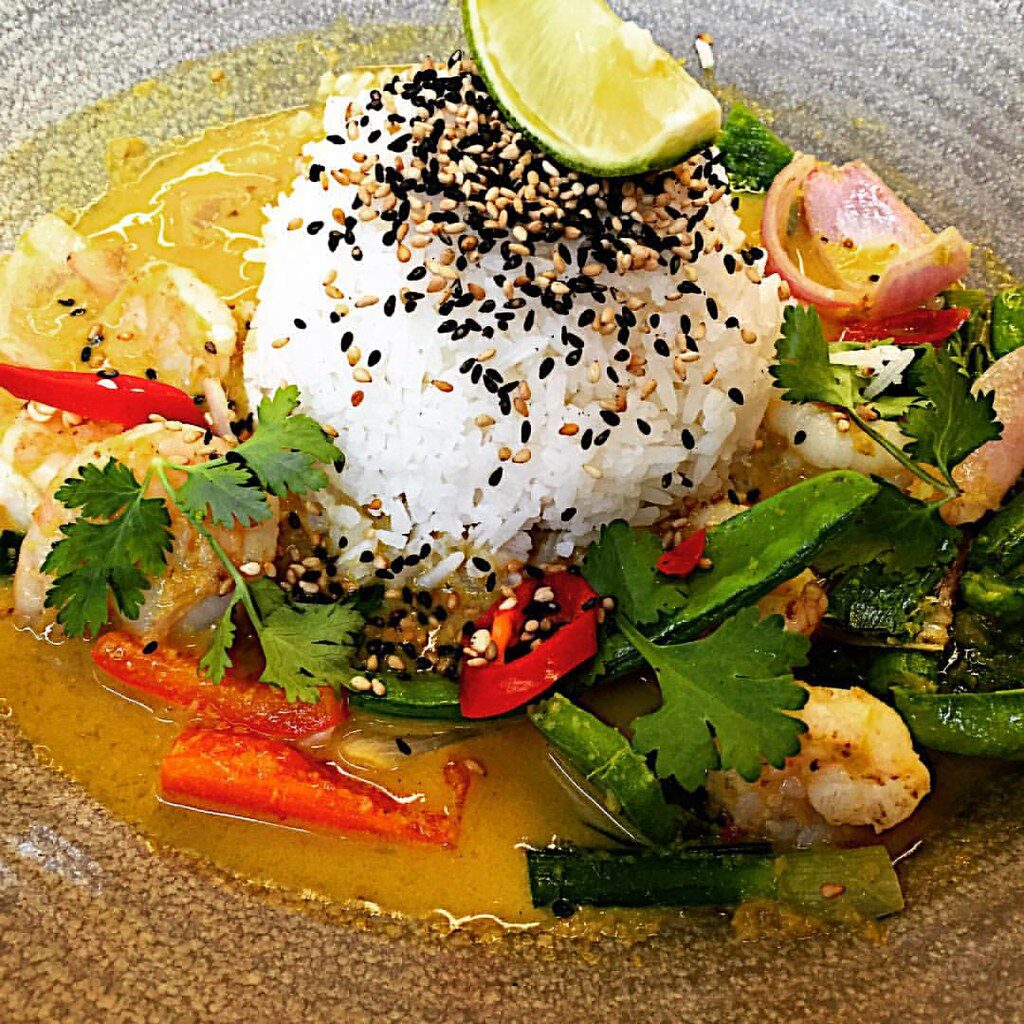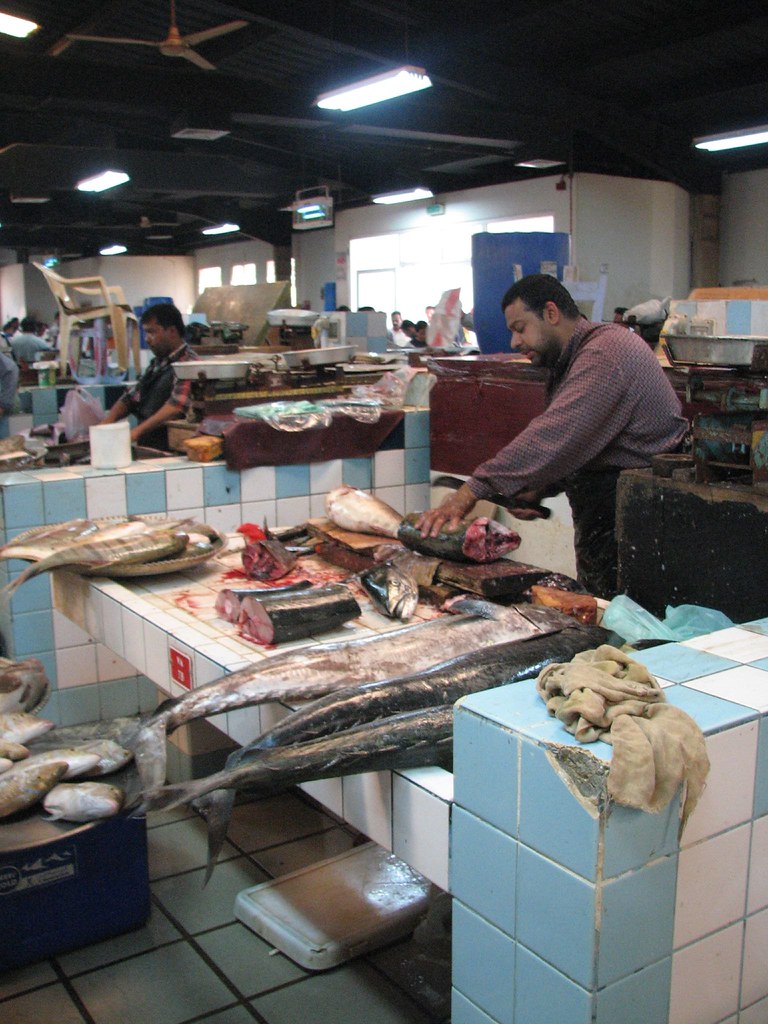
Bahrain, a small yet strategically important island nation in the Gulf Cooperation Council (GCC), has witnessed significant growth and transformation in its food industry over the past few decades. This article delves into the evolution, key players, government initiatives, and future prospects of Bahrain’s food industry, providing a comprehensive overview of the sector’s current state and its trajectory.
Economic Overview of Bahrain
Bahrain’s economy is one of the most diversified in the GCC, with strong sectors in finance, manufacturing, and logistics. The country’s strategic location, excellent infrastructure, and business-friendly environment have made it a hub for various industries, including food and beverages. The government’s Vision 2030 economic plan aims to reduce reliance on oil by promoting other sectors, including food production and processing, which plays a crucial role in this diversification strategy.
Bahrain’s GDP reached $38.57 billion in 2020, with a significant contribution from non-oil sectors, showcasing the effectiveness of diversification efforts. The financial sector, which contributes approximately 16.7% to the GDP, is a testament to the nation’s robust economic structure. The government has invested heavily in infrastructure projects, such as the $1.1 billion Bahrain International Airport expansion and the development of the Bahrain Logistics Zone, further boosting the nation’s economic resilience and attractiveness for businesses.

Evolution of Bahrain’s Food Industry Since 1980
The food industry in Bahrain has evolved significantly since the 1980s. Initially, the sector was dominated by small-scale operations and heavy reliance on imports. However, over the decades, Bahrain has developed a robust food manufacturing sector, driven by investments in technology and infrastructure. This transformation is evident in the establishment of large food processing plants and the entry of multinational corporations into the Bahraini market.
In the 1980s, the Bahraini food industry primarily consisted of traditional markets and small-scale local production. The government’s push for industrialization in the 1990s saw the establishment of industrial zones, such as the Bahrain International Investment Park (BIIP), which attracted significant foreign investment. The advent of modern retail chains like Carrefour and Lulu Hypermarket in the 2000s revolutionized the retail landscape, offering a variety of international and local food products. The opening of state-of-the-art food processing facilities by global giants like Mondelez International in 2008 marked a new era of industrial capability and export potential for Bahrain (FocusEconomics) (Oxford Business Group).
Bahrain’s Importance in the GCC
Bahrain’s strategic location and well-developed logistics infrastructure make it a vital player in the GCC food industry. The country serves as a gateway to the broader GCC market, which is characterized by high consumption rates and a growing demand for diverse food products. Bahrain’s efficient transport networks, including the King Fahd Causeway linking it to Saudi Arabia, enhance its role as a logistics and distribution hub in the region.
Bahrain’s participation in the GCC Customs Union and the Unified Economic Agreement facilitates seamless trade across member states, ensuring the free flow of goods and services. The Khalifa Bin Salman Port, with a capacity of handling 1 million TEUs (Twenty-foot Equivalent Units) annually, is a pivotal asset in Bahrain’s logistics network, enhancing its role as a transshipment hub. Additionally, the Bahrain International Airport, equipped with a new cargo terminal capable of handling 1 million tons of cargo per year, further underscores Bahrain’s strategic importance in regional trade (FocusEconomics) (Oxford Business Group).
Key Players in Bahrain’s Food Industry
Several key players dominate Bahrain’s food industry, each contributing significantly to the sector’s growth:
- Mondelez International: Known for its iconic brands like Oreo and Ritz, Mondelez operates a major production facility in Bahrain, which serves as a manufacturing and export hub for the MENA region. The Mondelez plant in Bahrain, spanning 250,000 square meters, produces over 45,000 tons of snacks annually, exporting to more than 25 countries.
- Website: Mondelez International
- Arla Foods: This European dairy giant has a substantial presence in Bahrain, with a facility that produces and exports dairy products across the Middle East, North Africa, and Asia. Arla Foods’ production plant in Bahrain is a key player in the company’s global supply chain, processing millions of liters of milk annually.
- Website: Arla Foods
- Nestlé Middle East: Nestlé operates a significant manufacturing and distribution center in Bahrain, catering to the regional market with a variety of food and beverage products. The Nestlé factory in Bahrain, part of the company’s strategic investment in the Middle East, focuses on producing culinary products and dairy items tailored to regional tastes.
- Website: Nestlé Middle East
- Delmon Poultry Company: A leading local company, Delmon Poultry, is crucial in supplying fresh and processed poultry products to Bahrain and neighboring countries. Established in 1980, Delmon Poultry has expanded its operations to include advanced processing facilities and a robust distribution network.
- Website: Delmon Poultry Company
- BMMI Group: A key player in food retail and distribution, BMMI Group manages a wide range of food and beverage brands and operates a significant logistics network. BMMI’s operations extend beyond Bahrain, with a presence in multiple GCC countries, and the company is known for its comprehensive supply chain solutions.
- Website: BMMI Group
- Al Jazira Group: Al Jazira is one of Bahrain’s leading supermarket chains, offering a wide variety of local and imported food products. The group has expanded significantly over the years, establishing a strong retail presence and catering to diverse consumer needs.
- Website: Al Jazira Group
- Nasser Bin Khaled (NBK): NBK is a significant player in Bahrain’s food and beverage sector, involved in the import and distribution of a wide range of food products. The company has established partnerships with several international brands, enhancing its product portfolio.
- Website: NBK Bahrain
- Yateem Food: Yateem Food is a prominent local company involved in the production and distribution of various food products, including dairy, beverages, and snacks. The company has a strong market presence and is known for its quality products.
- Website: Yateem Food
Import and Export of Food Products in Bahrain’s food industry
Bahrain imports a wide array of food products due to its limited agricultural capacity. Key imports include cereals, meat, dairy products, and fresh produce, primarily sourced from countries like India, Brazil, the United States, and Australia.
Bahrain imported approximately $1.8 billion worth of food products in 2020, with cereals and meat being the largest categories. The country’s dependence on imports for staples like rice, wheat, and meat underscores the importance of international trade partnerships. Key trading partners include India, which supplies a significant portion of rice and spices, and Brazil, a major exporter of meat and poultry to Bahrain.

On the export front, Bahrain has developed a niche in processed foods, dairy products, and confectionery. Major export destinations include other GCC countries, North Africa, and Southeast Asia. In 2020, Bahrain’s food exports were valued at around $300 million, with dairy products and confectionery being the leading categories. The strategic location and advanced logistics infrastructure facilitate efficient export operations, enabling Bahraini products to reach markets swiftly and efficiently.
Government Initiatives to Support the Food Industry
The Bahraini government has implemented several initiatives to bolster the food industry:
- Incentives for Foreign Investment: Bahrain offers attractive incentives for foreign companies, including tax exemptions, 100% foreign ownership, and streamlined business processes. The Bahrain Economic Development Board (EDB) actively promotes investment in the food sector, offering tailored support and facilitation services to investors.
- Source: Invest in Bahrain
- Tamkeen Support Programs: Tamkeen, a government agency, provides financial support and training programs to local businesses in the food sector, enhancing their competitiveness and innovation capabilities. Tamkeen’s Enterprise Support Program offers grants and subsidies to small and medium-sized enterprises (SMEs) in the food industry, encouraging growth and sustainability.
- Source: Tamkeen
- Food Security Initiatives: The government has launched initiatives to enhance food security, including investments in local food production, sustainable agriculture, and advanced food processing technologies. The National Food Security Strategy 2030 outlines plans to increase local production of essential food items and reduce dependence on imports.
- Source: Bahrain Food Security
- Logistics Infrastructure Development: Continuous improvements in Bahrain’s logistics infrastructure, such as the new terminal at Bahrain International Airport and the expansion of seaport facilities, are crucial for the food industry’s growth. The development of the Bahrain Logistics Zone, a state-of-the-art logistics hub, further supports the efficient movement of food products.










